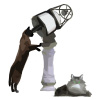google_alternate_ad_url = "/images/ad/GiftShopOne.html";
google_ad_width = 160;
google_ad_height = 600;
google_ad_type = "text_image";
//2007-03-09: Side Tower Low, Image or Text
google_ad_channel = "3790078510+6141542500";
google_color_border = "000000";
google_color_bg = "FFFFFF";
google_color_link = "FF3300";
google_color_text = "000000";
google_color_url = "3333CC";
//-->

